Covid-19: Rules 'devastating' for West Midlands venues
- Published
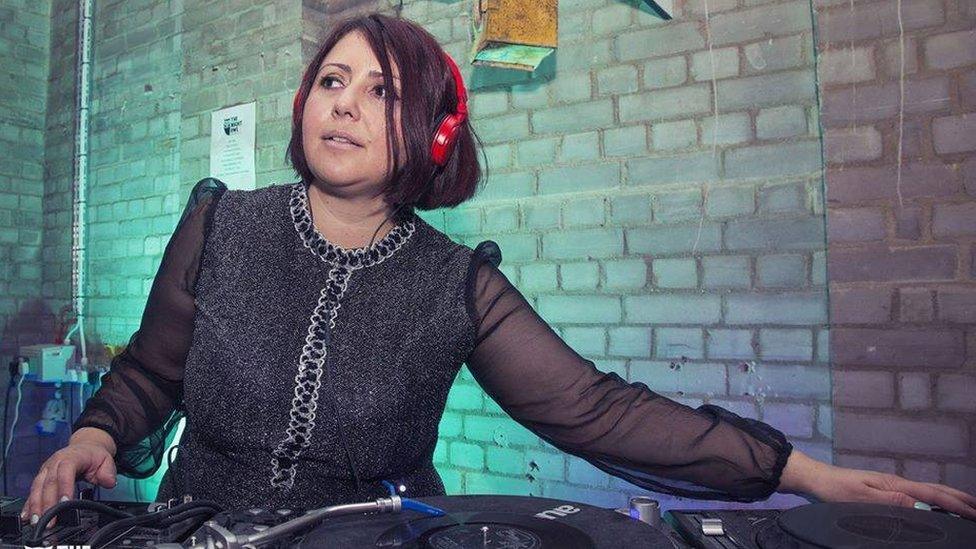
Night Owl DJ Mazzy Snape said the restrictions will be hard for businesses to police
New Covid-19 restrictions have been branded as "devastating" for the West Midlands' hospitality industry.
Under Tier Two rules, households in Birmingham, Sandwell, Solihull, Walsall, and Wolverhampton will be banned from mixing inside bars or restaurants, despite previously being allowed to do so.
Businesses said the "disappointing" decision will badly affect trade.
Politicians are calling on the government to offer more support.
Katie Rouse, who owns Stirchley cocktail bar Couch, said it has seen 12 cancellations the day after the Tier Two restrictions were announced.
She said she worried for neighbouring businesses.
"In the hospitality sector, every month or every couple of weeks new restrictions come in, we take all the rules, we do them - track and trace, the distancing rules, sanitizer - chefs and bartenders are so clean anyway, but we are doing everything we are told to do but still get penalised," she said.
"Me and my friends who own small businesses are very angry. We have gone from being upset and strategising and working out how we can save our businesses the best can and we have given up, it is like we are playing a game we can't win."
Katie Rouse, from Couch, spoke to the BBC about how her business had fared during lockdown
Laura McEwan, 35, who runs food blog Bite Your Brum, said it was "heartbreaking" for the industry.
"Without a doubt these new restrictions will be the last straw for struggling venues, particularly those that have no outdoor space and rely on larger tables to fill their venues," she said.
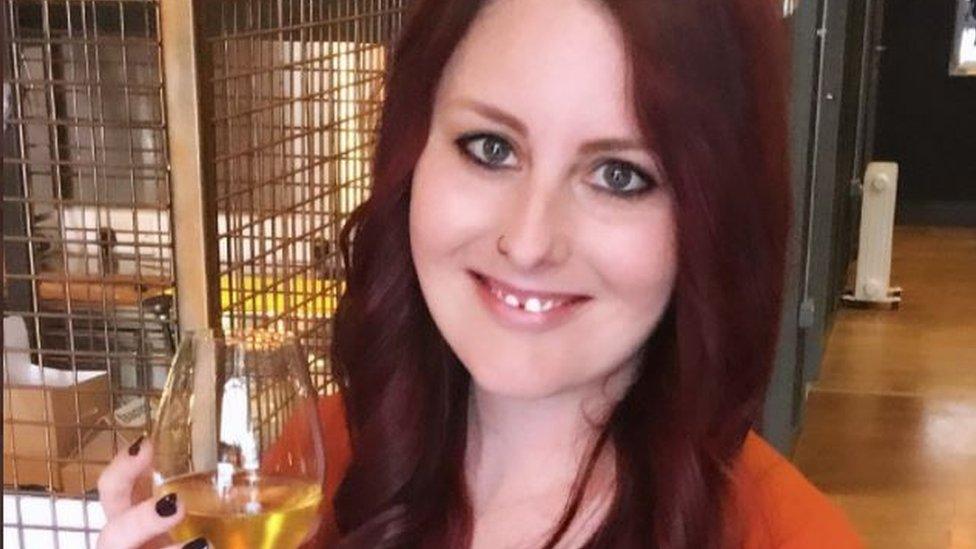
Laura McEwan said the new restrictions could be the "last straw" for businesses
"It would honestly be better for Birmingham hospitality businesses if they introduced Tier Three - at least then they'd get some financial support.
"This week has crushed the spirit of so many running venues in the city - I honestly dread to think what the landscape will look like come the new year.
"It's going to kill off what were viable, popular businesses this time last year."
Birmingham, Sandwell, Solihull and Wolverhampton have been under harsher restrictions since the middle of September, due to rising coronavirus cases.
Under those rules, multiple households could meet in parties of six within venues, but were not able to mix outside of their own household or support bubble in private residences.
However, when the new restrictions come into force on 14 October, multiple households are only allowed to mix outdoors and in private gardens - up to a maximum of six people.
Dr Justin Varney, Director of Public Health at Birmingham City Council, said the decision to introduce the new restrictions was because the country has been on an "upward trajectory" in terms of cases.
"Things have to get tighter otherwise we will see the level of deaths we saw back in April and May and if we don't put the breaks on that is where we are going to end up.
"It could be much worse because of course in winter we already have more deaths happen during the winter period, so if you add Covid on to that this could be really very damaging."
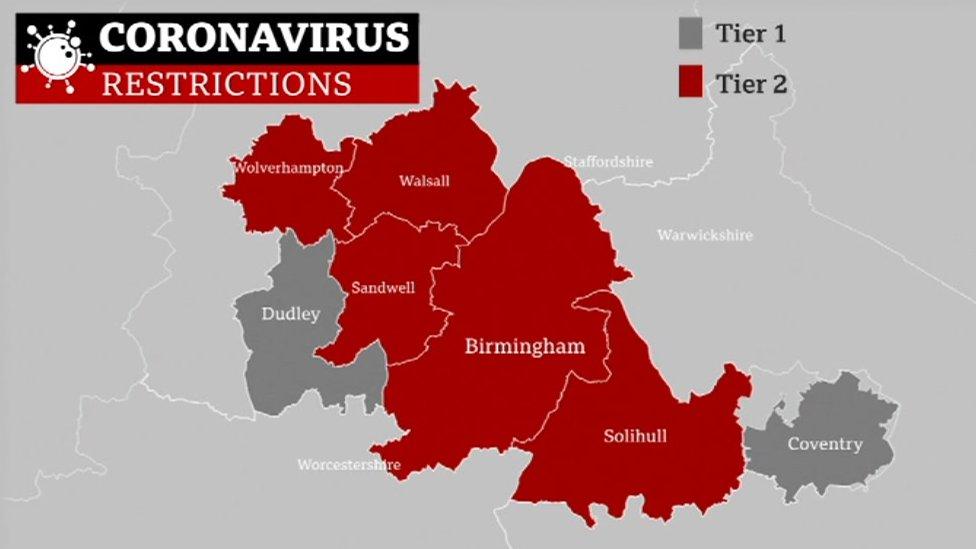
Birmingham, Sandwell, Solihull, Walsall, and Wolverhampton fall under Tier 2 restrictions, while neighbouring Dudley and Coventry are currently under Tier 1
West Midlands Mayor Andy Street said he felt it was not the right decision for the "health and livelihoods of citizens" and claimed there was "very little evidence" hospitality venues were accelerating the disease.
Birmingham City Council leader Ian Ward, along with other industry leaders, has written a joint statement, external to chancellor Rishi Sunak, warning the new restrictions will have a "detrimental impact" on economic recovery.
Mr Ward said: "It has been an incredibly challenging time for the city over the last several months and without further support from government it could well be a bleak winter."
Deputy leader Brigid Jones added "decisive action is now required".
She said: "This is a more challenging time than anyone could have imagined. We are an incredibly vibrant city, and prior to Covid, Birmingham's economy was one of the strongest in the UK."

Analysis
By Elizabeth Glinka, Political Editor, BBC Midlands Today
If you live in Wolverhampton where the infection rate is 104 per 100,000 you might be wondering why your city's been put in tier-two while regional neighbours like Newcastle-under-Lyme and Coventry where the rates are higher at 140 and 135 per 100,000 respectively - are in tier-one.
So why is this? Well the tier system was designed to be clearer, but there are no hard and fast criteria, and it's not just based on cases.
Other factors include; who's getting infected? If it's almost completely students, then an area is less likely to go to a higher tier.
Is there a risk of pressure on local hospitals and how quickly are things changing? Rapidly increasing infections even from a low base could influence decisions.

Conservative Solihull MP, Julian Knight, said he was "deeply disappointed" that the town had been brought under the "high" restrictions.
"This decision has the potential to inflict untold damage on the hospitality sector and was not what local leaders wanted," he said.
"Making hospitality unviable by restricting the ability of households to mix, while not including those businesses in new support measures unless they're forced to close, would be the worst of all worlds."
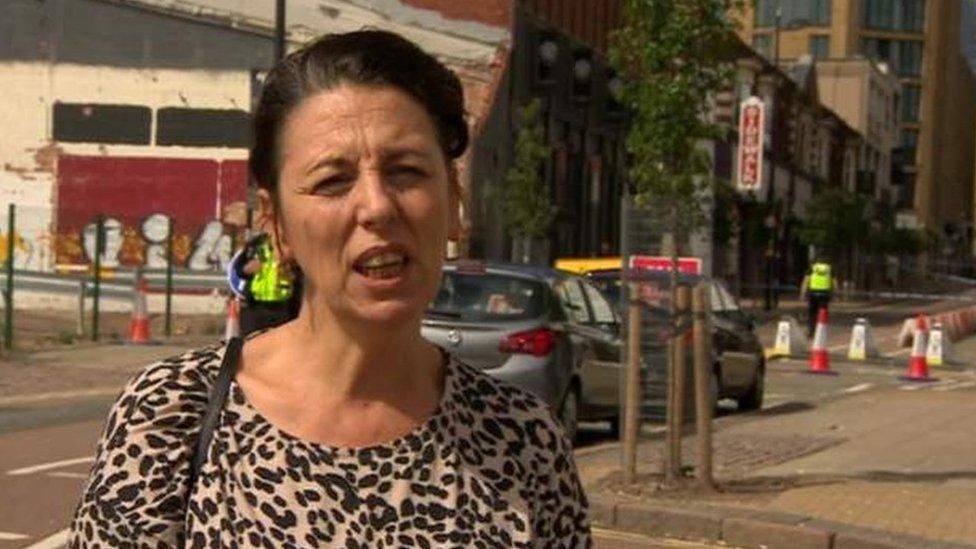
Julia Robinson said there should be more support for hospitality businesses during under the restrictions
Julia Robinson, the manager of Birmingham's Southside BID district, agreed there should be more support for affected businesses.
"Obviously this is going to really affect bars and restaurants and other hospitality venues, but it is not clear what support is going to be on offer for them," she said.
"[Businesses] are stuck between a rock and a hard place, it is similar to before lockdown when they said we could stay open but said no one should go out.
"If you are forced to close, you can get funding, but if you are forced to stay open but are not able to trade it is really, really difficult."
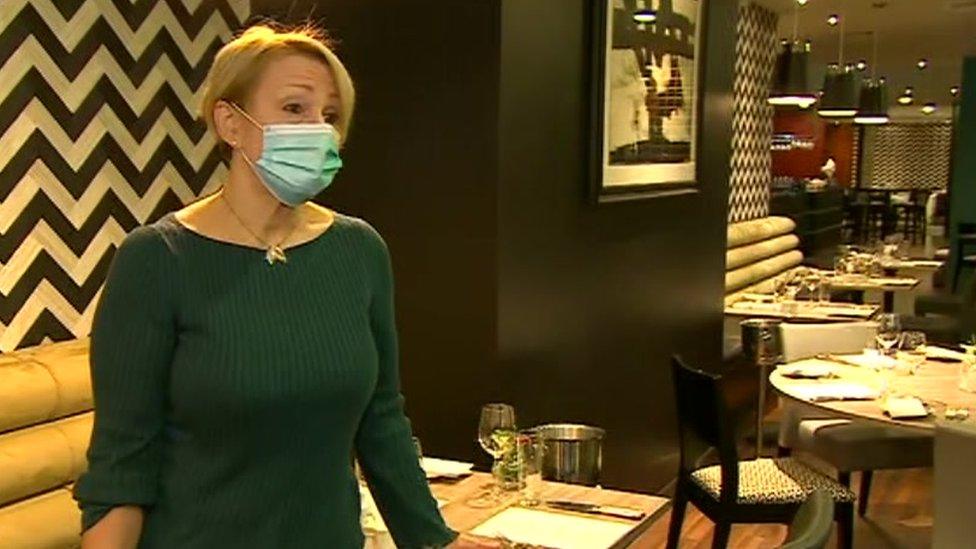
Ann Tonks said the latest restrictions are "devastating"
Ann Tonks, the managing director of Opus restaurant in Birmingham said it expected to lose about 60% of bookings.
"Frankly it is devastating for our industry and our city," she said.
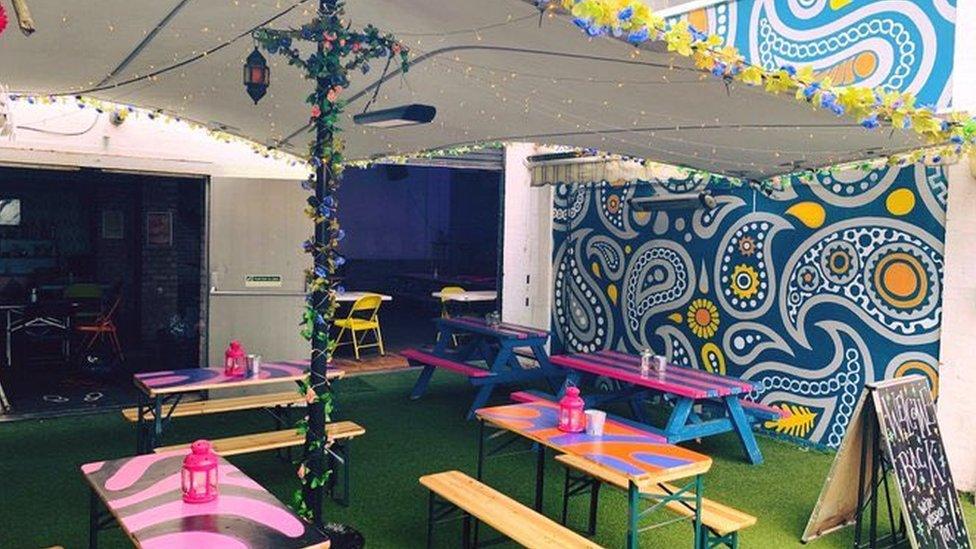
People living within tier two areas can meet outdoors and in private gardens, up to a maximum of six people
Mazzy Snape, DJ and promoter at the Night Owl in Birmingham, said the issue for venues is trying to police the restrictions.
"Obviously safety is important but this is going to be really difficult," she said.
"We have some events coming up and we will have to email people and check that if they are attending then they are attending with people from their family bubbles.
"Obviously some people are going to have to cancel, and some people might pretend to be in bubbles- hopefully they won't do that but how do you check?"
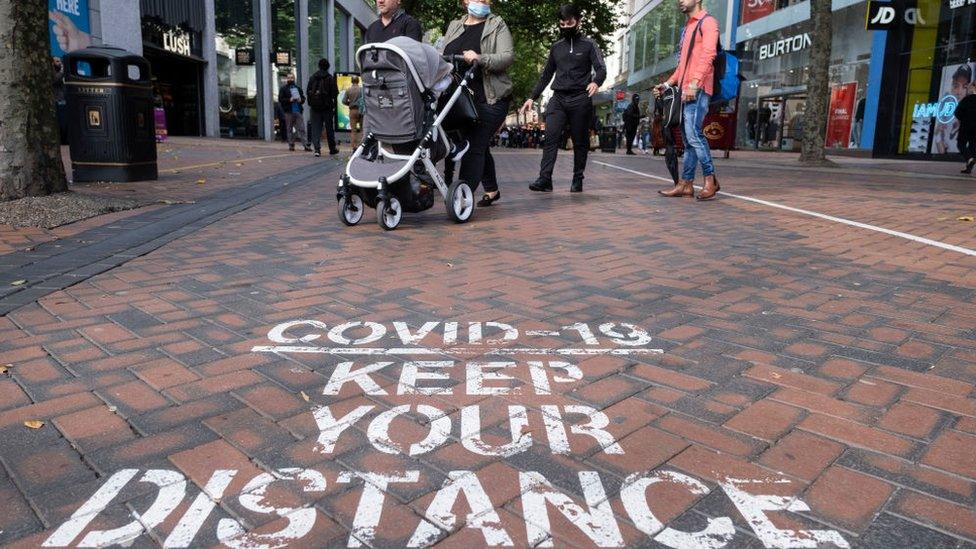
Businesses in Birmingham were given "little detail and no guidance" ahead of the restrictions, say the chambers of commerce
Paul Faulkner, chief executive of the Greater Birmingham Chambers of Commerce, said the announcement came with "little detail and no government guidance for businesses".
"Despite having invested vast sums of money in Covid secure measures, the region's hospitality sector is being thrown under the bus with no substantial evidence of significant transmission in hospitality settings," he said.
"We need the government to step up, fix the failing test & trace system, follow the evidence and deliver meaningful support to save businesses and jobs as we battle through the winter months."

LOCKDOWN LOOK-UP: The rules in your area
SOCIAL DISTANCING: How have rules on meeting friends changed?
SUPPORT BUBBLES: What are they and who can be in yours?
FACE MASKS: When do I need to wear one?
TEST AND TRACE: How does it work?

Follow BBC West Midlands on Facebook, external, Twitter, external and Instagram, external. Send your story ideas to: newsonline.westmidlands@bbc.co.uk , external
- Published13 October 2020
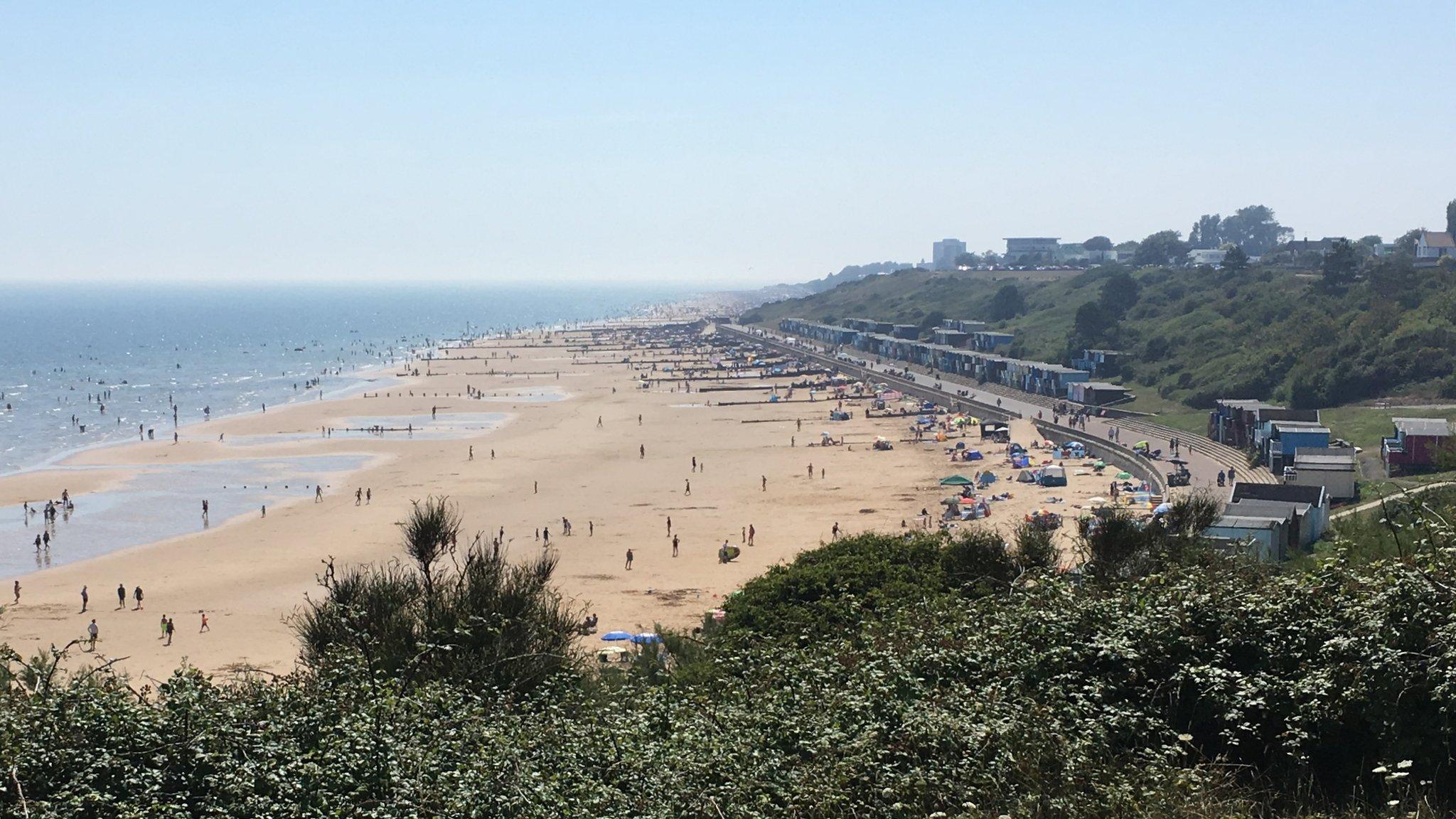
- Published13 October 2020
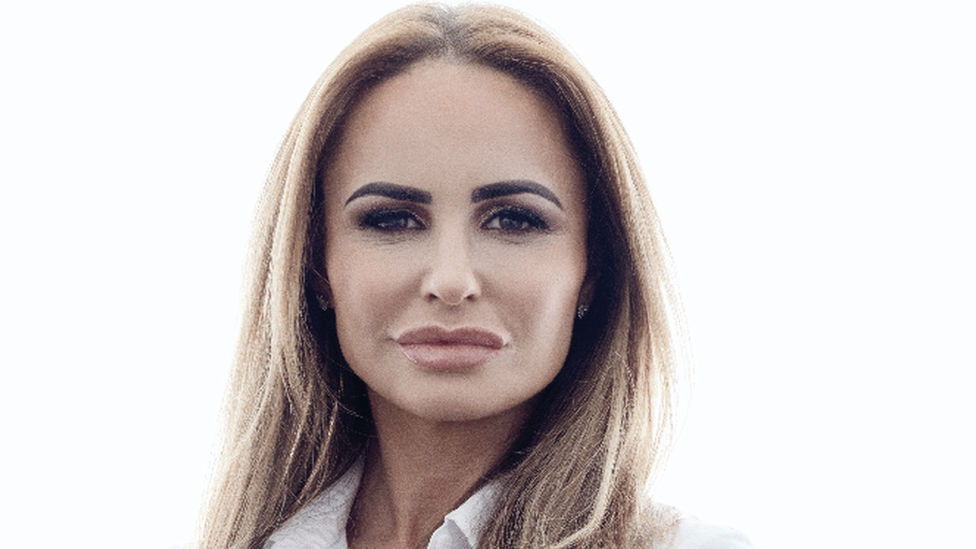
- Published12 October 2020
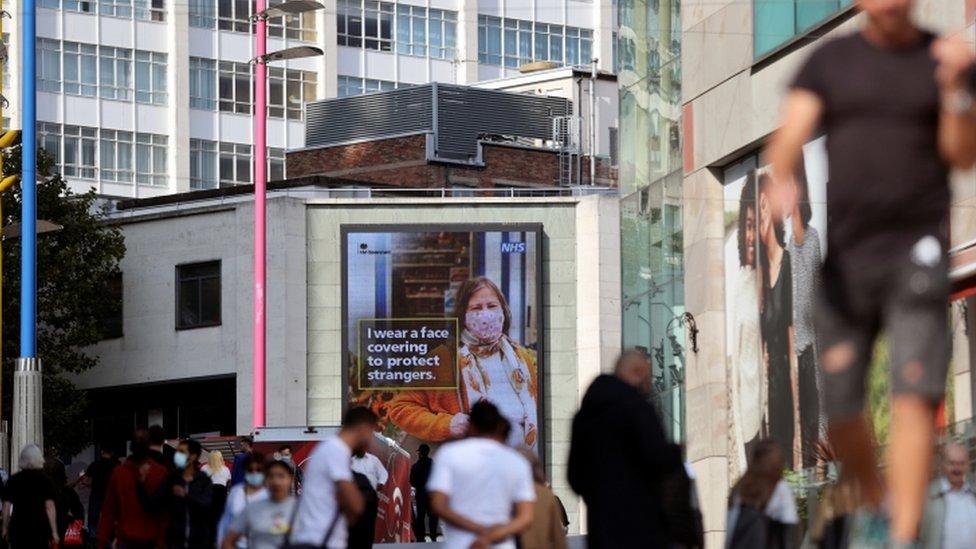
- Published1 July 2022

- Published13 October 2020
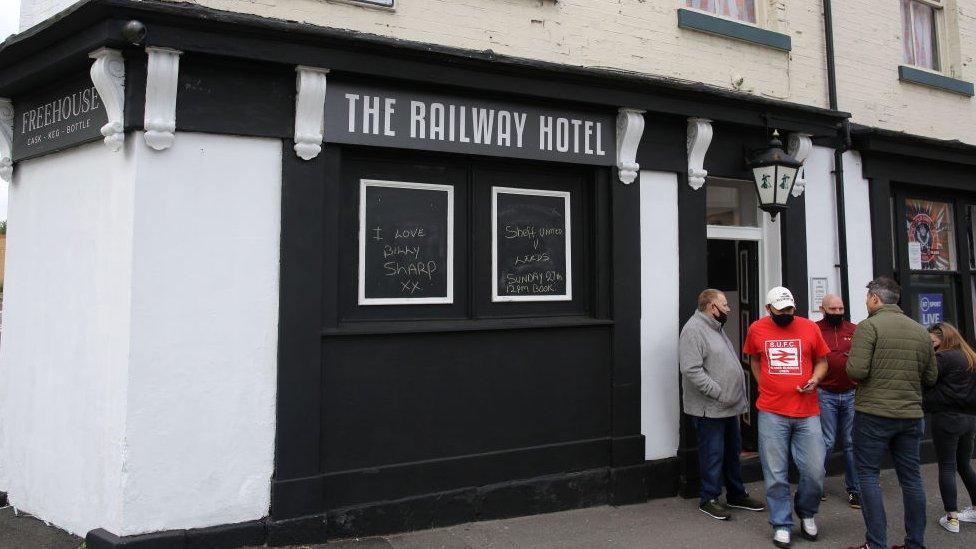
- Published10 October 2020
